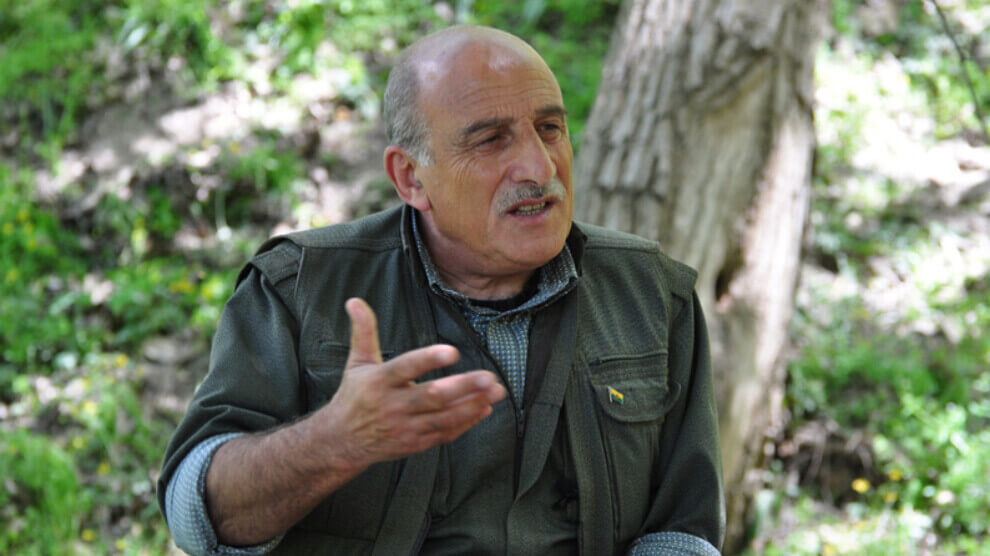Duran Kalkan, a senior leader of the outlawed Kurdistan Workers’ Party (PKK), has said although President Recep Tayyip Erdoğan accuses the opposition of cooperating with the terrorist group, it is his own government that has conducted the most talks with PKK leadership.
More than 40,000 people, including 5,500 security force members, have been killed in four decades of fighting between Turkish security forces and the PKK, which is listed as a terrorist organization by Turkey and much of the international community.
Kalkan’s remarks came during an interview with the pro-Kurdish Medya Haber TV on Monday.
He said that while Erdoğan frequently accuses the opposition of links to the PKK as part of propaganda for the presidential and parliamentary elections slated for May 14, he and figures from his ruling party were the ones who held the most meetings with the leaders of the PKK.
Medya Haber TV'ye konuşan Duran Kalkan, Erdoğan'ın muhalefete yönelik suçlamaları konusunda; ''PKK ile en çok ilişki kuran Erdoğan oldu. MİT müsteşarı İmralı'ya gitti…'' açıklamasında bulundu… pic.twitter.com/IjYdhJWc5d
— Amed Dicle (@ameddicleT) April 17, 2023
“Tayyip [Erdoğan] and the AKP established relations with the PKK. They even went to İmralı. They arranged many meetings with leader Apo, [and] sent envoys to Qandil. … Everyone knows,” Kalkan said.
Abdullah Öcalan, leader of the PKK, has been jailed in a high-security prison on İmralı Island in the Sea of Marmara since 1999.
The Kandil Mountains in northern Iraq are the stronghold of outlawed PKK militants.
Kalkan added that Erdoğan’s government also sent senior officials from the National Intelligence Organization (MİT), including then-deputy undersecretary and current head of MİT Hakan Fidan, to hold direct discussions with the PKK in Oslo in 2009.
Erdoğan’s accusations about the opposition’s alleged links to the PKK have increased since the pro-Kurdish Peoples’ Democratic Party (HDP) announced its tacit support for Erdoğan’s rival, Kemal Kılıçdaroğlu, Turkey’s main opposition leader and the joint candidate of an opposition bloc of six parties.
The HDP, which faces a closure case due to its alleged links to the PKK, decided last month not to field its own presidential candidate in an apparent move to avoid splitting the opposition vote.
The ruling AKP increased its crackdown on Kurds, especially after the collapse of Ankara’s settlement process with the PKK in 2015.
The settlement process, which refers to direct talks between the AKP government and Öcalan, began in 2012 and ended after two police officers were executed in southeastern Şanlıurfa province in June 2015.
Erdoğan was recently accused by Kılıçdaroğlu of “exploiting” the process solely to protect his political position and making citizens pay a heavy price for it in the foreword of a book authored by a lawmaker from his party.
Kılıçdaroğlu has argued that the Kurdish issue could be resolved through political and societal consensus at the Turkish parliament with a legitimate interlocutor such as the HDP – parliament’s second-largest opposition group – instead of Öcalan, who he said was an illegitimate actor.
The Kurdish issue, a term prevalent in Turkey’s public discourse, refers to the demand for equal rights by the country’s Kurdish population and their struggle for recognition.



